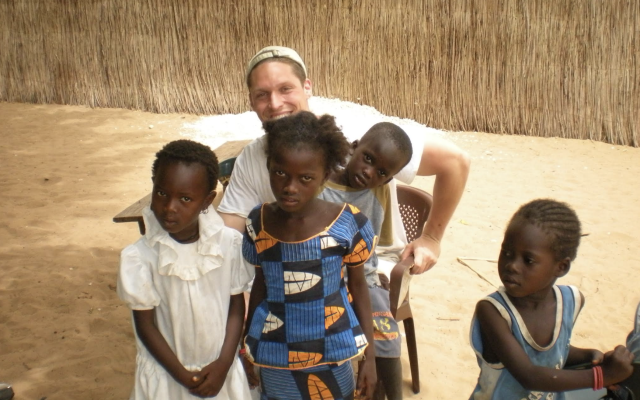By Rabbi Dr. Shmuly Yanklowitz
As recently reported in The New York Times and The Washington Post, the Gambian parliament voted overwhelmingly to advance a bill that would repeal a 2015 ban on Female Genital Cutting in the small, West African country. If the bill proceeds to ratification, it will be the first time a country has eliminated protections against cutting, and experts fear that it could lead other countries to follow.
Female genital cutting, generally performed on young girls, is a frequent cause of death, or severe health problems and lasting emotional trauma.
The practice is globally denounced as a violation of human rights. The vast majority of Gambia’s legislators are men, and the campaign to repeal the ban has been led by Abdoulie Fatty, a prominent imam, though traditionally as well as currently, most perpetrators of FGC are women. The current effort to repeal the ban began following the conviction last year of three women for violating the law, which until then had rarely if ever been enforced.
A grassroots movement led by women who have survived FGC fought for the original ban and is opposing the new bill to repeal it, including such organizations as Safe Hands for Girls, founded by renowned Gambian activist and FGC survivor Jaha Dukureh.
Western activists and institutions are not always sure how and if to get involved and speak out about issues like these. How far does a belief in multicultural pluralism and relativism extend? Does it mean we have no role to play in this decision by the Gambian government? My belief is that in the case of Female Genital Cutting, these young girls’ fundamental human right to safety is too important to be considered merely an internal community issue.
I say this even though, as a religious Jew, I feel very personally and deeply the dangers of outsiders, especially Western powers, imposing their values as “universal morality” on ancient traditions. European countries periodically move to ban the Jewish kosher slaughter practices. And even though I am a vegan and an activist for protecting animals, I know that any attempts to ban kosher slaughter are cultural imperialism and an attack on religious freedoms.
So how can we act to protect the young girls of Gambia without being imperialists or “white saviors”, dictating our norms on another culture?
I have two answers to guide us. One I learned from my experience in the region, and one I learned from a great Ghanaian philosopher.

I have spent time on many service-learning missions with the American Jewish World Service over the years around the world and in many villages around Africa, including in Ghana and most relevant for the current situation, in Senegal, which surrounds the Gambia on all sides except the coast. I was privileged to hear first-hand from many women who had suffered from the practice of Female Genital Cutting, and
I learned about the process of cultural and legal change around the issue. I learned that it cannot come from the outside: White Christian women from America screaming at Africans (whether in the name of the Bible or in the name of feminism) to stop their barbaric ways is neither right nor effective. Instead, successful NGOs function by empowering local women to have conversations with each other that in many cases have been taboo, at least in recent history.
Change occurs when women, especially women in connector careers like hair stylists, begin to talk about their experiences. Through these conversations, the women discover that they have shared trauma, and decide they do not want their daughters and granddaughters, the next generations, to suffer what they suffered.
Our role is not to teach or to preach. Our role is to support the local women in their own work of self and mutual empowerment and advocacy for change.
The second lesson comes from the Ghanaian-British-American ethical philosopher Kwame Appiah, who has written a great deal about morality in a post-colonial and globalized world. I got to speak with him after members of the LGBTQ community in Ghana came under attack from the government and religious leaders in 2021.
Professor Appiah is Ghanaian and also himself homosexual. I asked him what should be the role of Western voices in that situation. Should American leaders be speaking out to Ghanaian leaders against the repression of the queer community? Appiah answered “I think we should be clear to them that we do think that they have a responsibility to bring their country into compliance with human rights norms.…” and he went on, “I want to have that conversation, because I want them to be able to tell us what we are doing wrong….”
The global interconnectedness of the world today allows us to see the plight of young girls on a different continent, and therefore gives us some responsibility to protect them. At the same time, that global interconnectedness is also an immense opportunity to repair the moral failings of our own societies by learning from other cultures as well. We must approach the dialogue with the people of the Gambia with the humble awareness that we have as much to learn from them as they have to learn from us.
Even as we make clear that we will not stand for a reversal on the ban on Female Genital Cutting, we are hungry for their moral clarity and wisdom on how we can make our own society more caring, just and upright.










